Green Fashion 101
5 mins read
5 Nigerian Fashion Labels Doing Sustainability Right
By Moyosoreoluwa Sanmi-alao
July 28, 2025
Nigerian brands like Éki Kéré, Lohije, and Kílèntár are proving that sustainable fashion can be local, ethical, and beautifully rooted in culture.
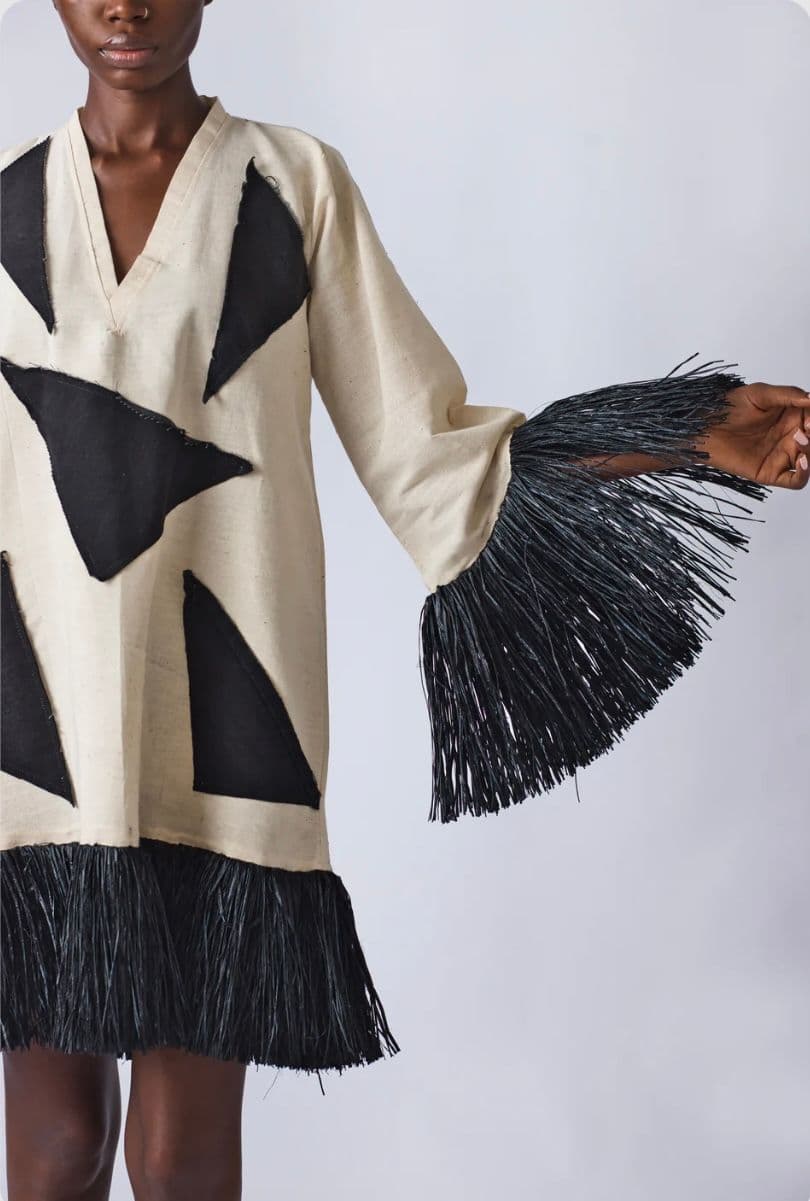
A Raffia doll jean dress as seen on Éki Kéré.com
As African fashion continues to evolve, one of the most exciting shifts is the growing embrace of sustainability. Across Nigeria, designers are shifting away from fast fashion, choosing more thoughtful ways of designing. They’re using resources at their disposal, from homegrown cotton to coconut shell buttons, natural dyes, and even adapting traditional weaving techniques.
But what exactly does sustainable fashion mean? At its core, it’s about creating clothes that care for the environment, for the makers, and for the communities they represent. It involves using natural or recycled materials, working with local artisans, minimising waste, and valuing quality over quantity. And Nigerian brands are proving that these values are possible.
In this piece, we’ll explore some Nigerian brands redefining sustainable fashion through culture, creativity, and conscious choices.
Eki Kere
In 2020, Abasiekeme Ukanireh, founded Éki Kéré to be more than a fashion brand; but also a love letter to culture, land, and craft. Éki Kéré draws inspiration from the vibrant masquerade traditions of The Raffia City to tell stories through fabric and honour the environment that shapes them.

Raffia doll jean dress as seen on Éki Kéré.com
The brand stands out for its inventive use of natural, biodegradable materials like raffia, plantain fibres, and rust-dyed fabrics. Over 70% of its pieces are handmade, a conscious effort to reduce waste and celebrate craftsmanship. One of its standout designs, the Raffia Vest, is handwoven in Ikot Ekpene using age-old techniques, and it naturally decomposes over time.
Éki Kéré also sources its fabrics ethically from across the continent. Think Mali mud cloth, looru from Jos, and Funtua cotton, showing a deep commitment to both African identity and sustainable production.
Lohije
At Lohije, waste isn’t something to discard; it’s the starting point of creativity. Founded by Gift Olohije Raji, the brand is rooted in a no-waste culture that sees beauty and potential in every leftover fabric and discarded shell.

Maiyya jumpsuit as seen on Lohije.com
About 95% of Lohije’s collections are handmade by artisans across Oyo State, Kano, and Lagos. Lohije has used handcrafted coconut shell buttons in its collection, reflecting its commitment to sustainability.
Even the brand’s packaging reflects its values. Lohije uses jute carriers and reusable fabric totes, replacing paper or nylon.
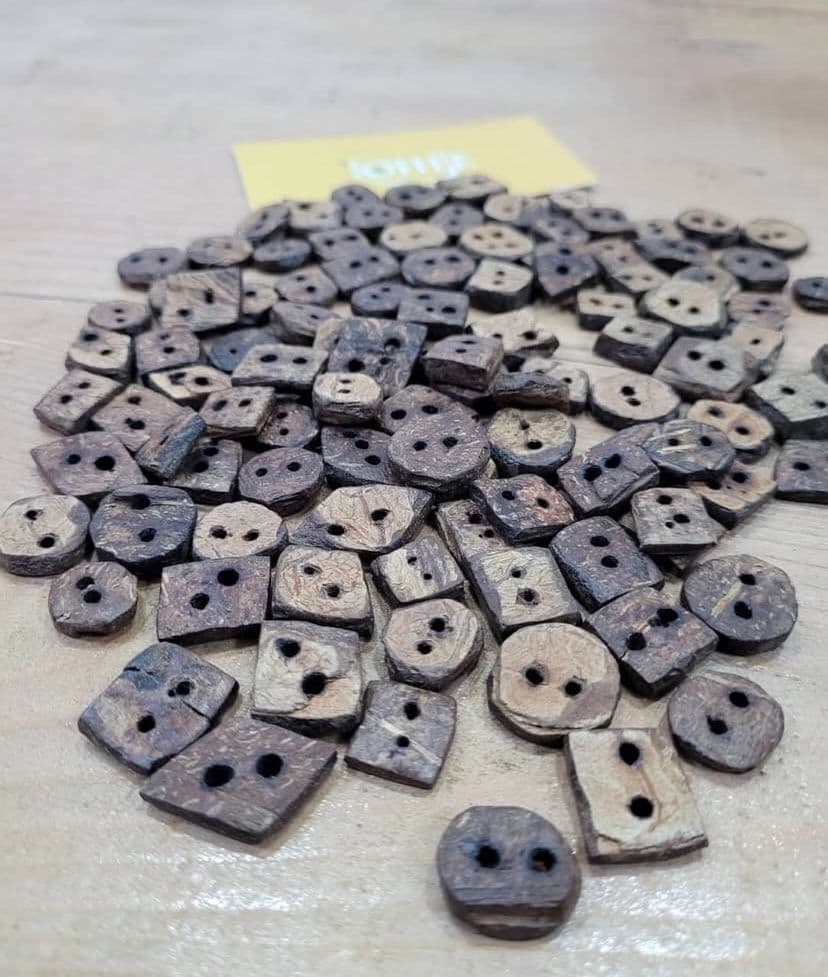
Coconut buttons: made out of discarded coconut shells (Source: Instagram)
This is Us
When Oroma Cookey-Gam and Osione Itegboje founded This Is Us in 2016, they set out with a radical idea: to create clothing that’s entirely Nigerian, yet exceptional.
Their mission took them across the country in search of homegrown textiles. They landed in Funtua, Katsina, where they found long-staple cotton, a soft, breathable variety grown on Nigerian soil.

Boxy lounge set as seen on thisisusworld.com
The fabric is dyed at the Kofa Mata dye pits, where it’s hand-dipped in natural indigo by artisans, using a 500-year-old dying technique. Each shirt or kaftan is dyed slowly and deliberately, resulting in deep, layered hues that get richer with wear.
This Is Us is more than a clothing label; it is a movement. Through its Uniform Wear collection, the brand honours the makers while designing comfortable, everyday essentials like tees, kaftans, and overshirts inspired by the people behind the process.
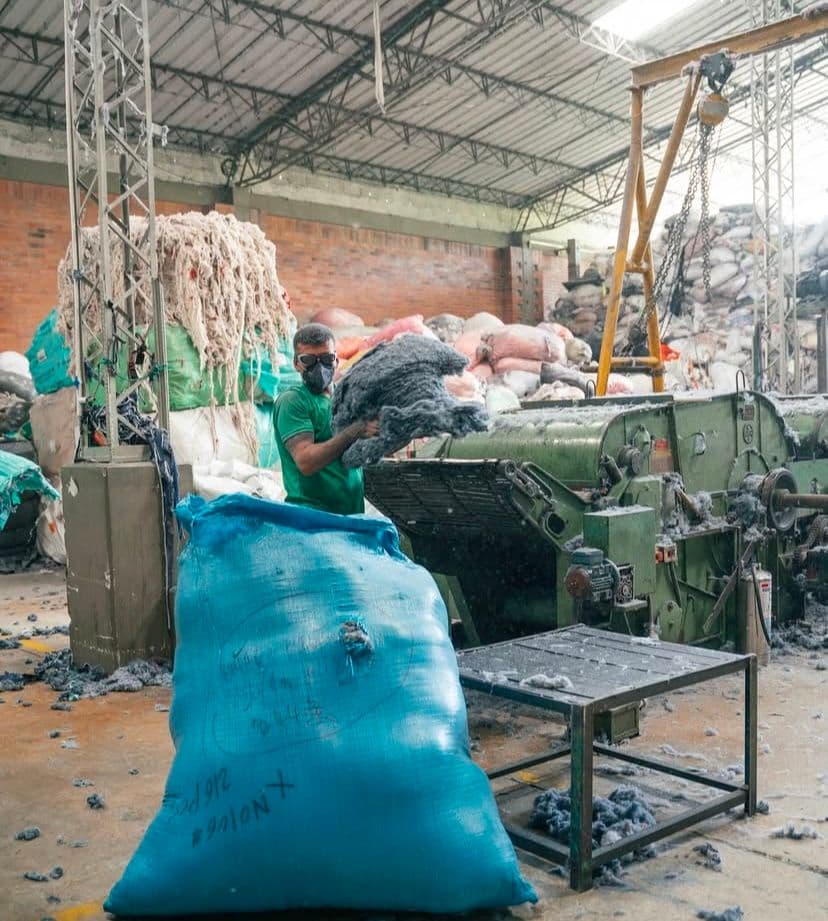
Source: thisisusng on Instagram
They also repurpose scraps into patchwork totes, tees, and custom pieces, proving that nothing and no one is disposable.
Nkwo
Founded by Nkwo Onwuka in 2012, the brand is built on the philosophy of less; crafting low-impact, limited-edition pieces from post-consumer waste, upcycled denim, and locally sourced natural fibres. Rather than mass produce, Nkwo leans into the intentional, creating clothes that uplift both the earth and the artisans.
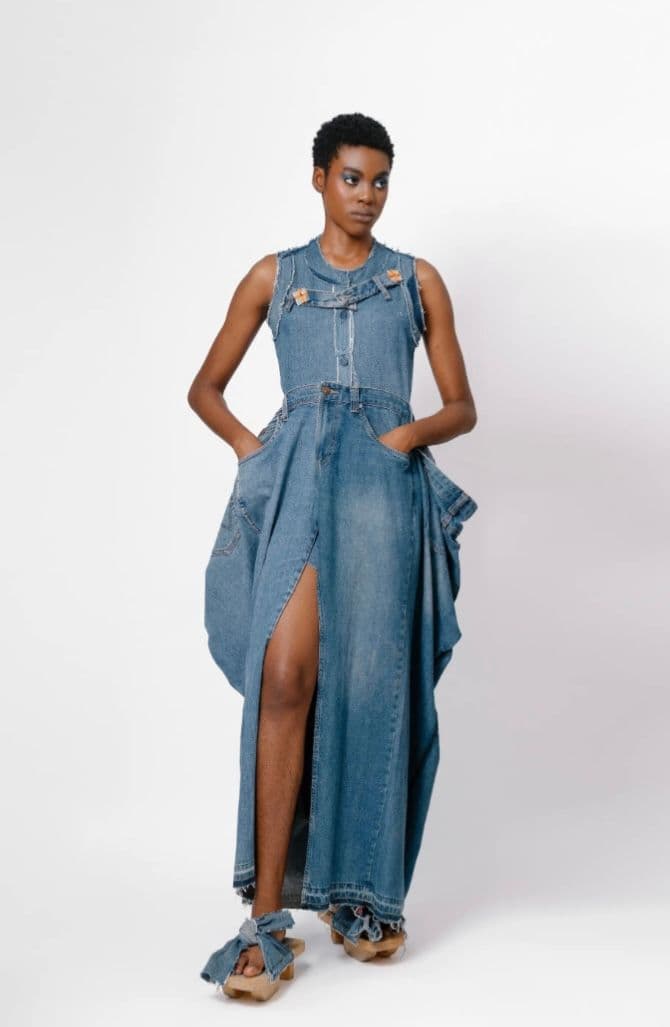
The layered maxi dress recreated from reclaimed denim (source: nkwo.design)
At the heart of the label is a desire to preserve traditional craft while tackling Nigeria’s growing fashion waste problem. This vision led to the invention of Dakala™ Cloth — a soft, textured fabric made entirely from textile waste using a modern twist on age-old techniques. Through this innovation, Nkwo turns discarded materials into sustainable fashion pieces.
Beyond the clothes, Nkwo is actively shaping the future of sustainable fashion in Nigeria. The Nkwo Transform project trains vulnerable women in garment making and collaborates with local artisans to introduce more mindful approaches to production. With Onwuka’s commitment to cultural preservation, resource conservation, and women’s empowerment, the brand has become a leading voice for sustainability on the continent.
Kílẹ̀ńtàr
The name Kílèntár is a nod to its roots, a Yoruba phrase meaning “What are you selling?” It’s a common call in the open markets in southwestern Nigeria.
Founded in 2019 by Michelle Adepoju, Kílèńtàr is a womenswear brand that respects African heritage while embracing ethical production. Each piece is handcrafted by indigenous female artisans, using locally sourced materials like cowrie shells, hand-dyed fabrics, and traditional beads.
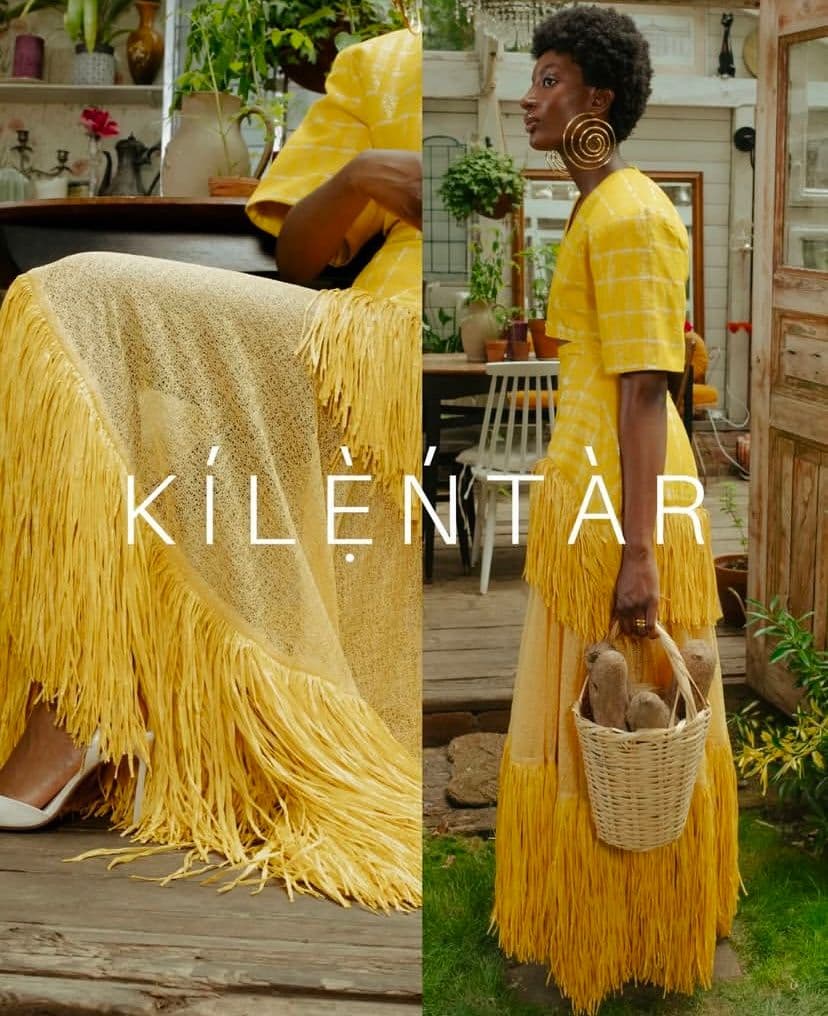
Adepoju’s travels across West Africa inspired the brand’s commitment to circular design. She produces limited runs, minimising waste, and upholding the generational wisdom of local makers.
Kílèntár also aligns with global values, supporting the UN’s Sustainable Development Goals, particularly gender equality (Goal 5), decent work and economic growth (Goal 8), and responsible consumption and production (Goal 12).
Like Post
Comments
Moyo
7/29/2025Interesting 🙂
Anonymous390
7/28/2025Wow amazing 🔥🔥🔥❤️
Joy
7/31/2025Beautiful! This is a very interesting read and the creativity behind these fashion brands is 👏👏 💯
Anonymous278
7/28/2025Love that you’re highlighting these brands
Ochuko
7/29/2025Interesting read❤️
Anonymous950
7/29/2025Interesting to read
Related Posts
MoreHow to Declutter Your Closet in Five Easy Steps
We’ve outlined five simple steps to declutter your wardrobe and embrace more sustainable fashion choices, helping you let go of clothes you no longer need.
Crocheting 101: Can We Outrun Fast Fashion Through Crocheting?
Learn how to make sustainable choices with crochet and discover whether crochet can truly outrun fast fashion.
Interview: Summer Chiamaka Anyanwu on Winning the Maiden Edition of Miss Green Fashion
Meet Summer Anyanwu, the Miss Green Fashion Queen, redefining sustainable fashion in Africa through purpose, leadership, and circular textile solutions.
Rita Idehai, on Waste, Work, and Driving Social Impact in Nigeria
Through Ecobarter and its fashion arm, Wrep, Rita Idehai is transforming plastic waste into fabric, and creating new pathways for women and communities to thrive.